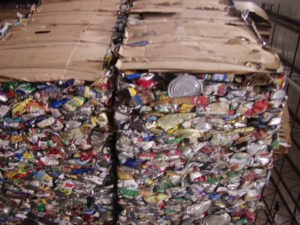Your intentions may be good, but your recycling practices may not be – and it’s time to change that. The term “wish-cycling” was coined to describe the phenomenon of people recycling things that they think or hope can be recycled. The pizza box made of cardboard (covered in grease), the plastic peanut butter jar (still smeared with sticky residue), the resealable granola pouch (made of both plastic and aluminum): they’re all made of materials that consumers think of as recyclable, so into the blue bin they go.
Why Does It Matter?
Acting on those good intentions can do a lot of harm. The best case scenario is that recycling facility workers separate out the items that have to be landfilled, which costs the employer time and money. The worst case scenario is equivalent to throwing a red marker into a load of white laundry. When tainted or hard-to-recycle items enter the material stream at a processing facility, they may contaminate the other recyclables, rendering the entire batch useless. Wish-cycling can also damage processing equipment, like when plastic bags end up tangled in sorting screens and conveyor belts.

Both individual consumers and businesses should keep in mind that recycling is only beneficial if it results in the creation of new products. Wish-cycling doesn’t help accomplish that goal.
Being conscious of wish-cycling and its downsides will change the way you recycle. It may put a dent in the quantity of materials that your business or family recycles because you’ll end up throwing more things away. Don’t be discouraged: adopting at least a few new environmentally-conscious habits is a great way to make up for wish-cycling, and it will help your team reduce the amount of trash that you generate.
Ten Ways to Reduce Your Environmental Impact
- Buy beer, wine and cocktails in cans made from 100 percent recycled materials instead of from glass bottles. Glass can be recycled again and again, but it breaks easily and the broken pieces can get mixed in with other materials, which makes sorting difficult.
- Keep cardboard separate from the rest of your recyclables to keep it clean and free of grease or food waste.
- Make cleaning solutions using reusable spray bottles. Cleaning product bottles are often wish-cycled, but they’re often either tainted or made of plastic types that are hard to recycle.
- Discontinue K-cup usage. They’re convenient but wasteful, and especially in large businesses, the used cups pile up quickly. Switch to reusable filters or a standard drip coffee maker.
- Bring reusable bags with you when you shop, and not just at the grocery store. Arrange for your business to distribute sturdy reusable plastic bags or totes to employees for their personal use.
- Buy food in bulk, which typically requires less packaging than single servings. For convenience, repackage the food into single servings using washable bags.
- Avoid buying plastic pouches like the ones used to hold trail mix, snacks, oatmeal and many kids’ foods. Buy things like nuts and oatmeal in bulk instead, using your own containers if possible.
- Reduce your use of disposable dishes and utensils. Styrofoam and some other types of plastic (like that used to make red Solo cups) can’t be easily recycled, although they’re often wish-cycled. For businesses that keep break rooms and kitchens stocked with these materials, moving to washable tableware may cause grumbles among people who are used to tossing their dishes, but it’s a better choice for the environment.
- Establish a collection site for plastic bags, like a dedicated bin placed near the trash and recycling bins. Return them to a grocery store for proper recycling.
- Spread the word about wish-cycling. Hang reminders and checklists above trash and recycling bins that help users determine whether an item is truly recyclable.
Most of all, don’t let wish-cycling and its drawbacks discourage your recycling efforts. Instead, lead the charge to change the way your family or business approaches recycling, and don’t be afraid to reach out to Miller Recycling with questions or concerns. We buy recyclables of many types, and we’ll even do a site visit to help your business evaluate its recycling practices and needs. If you’re ready to stop wish-cycling and take action, contact us today.

